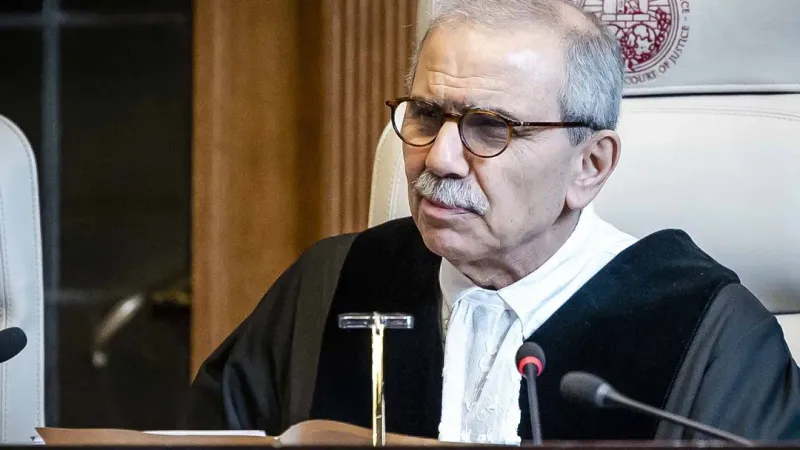Blinken Meets Israeli Officials on War, Return of Palestinians to North Gaza
US Secretary of State Antony Blinken met with Israeli Prime Minister Benjamin Netanyahu, the Israeli war cabinet, and other officials on Tuesday amid an ongoing diplomatic push by the US to solidify Israeli plans for the war in Gaza and thaw escalating regional tensions. Blinken said he had secur...
0:00
/1861
Facts
- US Secretary of State Antony Blinken met with Israeli Prime Minister Benjamin Netanyahu, the Israeli war cabinet, and other officials on Tuesday amid an ongoing diplomatic push by the US to solidify Israeli plans for the war in Gaza and thaw escalating regional tensions. Blinken said he had secured promises from four Arab nations and Turkey to support reconstruction in Gaza after the war, but said the countries also wanted to see an end to the fighting in Gaza and concrete steps toward the establishment of a Palestinian state.1
- During a one-on-one meeting with Netanyahu, Blinken reportedly told the Prime Minister that Israel must stop causing additional harm to civilians in Gaza. Blinken affirmed US support for Israel’s right to prevent attacks like Oct. 7 but 'stressed the importance of avoiding further civilian harm and protecting civilian infrastructure in Gaza.' Blinken was also expected to push for an 'imminent' transition to the next phase of the war reportedly involving lower-intensity conflict.2
- One of Blinken's goals is to ensure that Palestinians displaced from the north of the Gaza Strip can return to the area. It was reported on Monday that Israeli officials were set to tell Blinken that, though they accepted Palestinians returning to the north in principle, Israel would only agree to it as part of another hostage exchange deal with Hamas. Blinken's emphasis on a Palestinian return to the north comes as the Biden admin. has expressed concern regarding statements from right-wing Israeli ministers calling for Palestinians to be pushed out of the strip.3
- Blinken's visit also came as regional tensions escalated and the war in Gaza continued. Israeli forces, though lowering the intensity of their operations in north Gaza, have focused on the center and south of the strip. On the Lebanese border, Hezbollah on Tuesday said it launched explosive drones toward the Israeli army's northern command in the town of Safed, the deepest attack into Israel since the war began three months ago. Hezbollah said the attack was retaliation for the killings of the Deputy Head of Hamas's Political Bureau, Saleh al-Arouri, last week and a senior Hezbollah commander on Monday.1
- Israeli forces also experienced one of the deadliest days of the war in Gaza on Monday, reportedly losing nine soldiers in three separate incidents in al-Bureij in central Gaza and Khan Younis. An additional eight soldiers were also reportedly wounded.4
- Gaza's health ministry reports that the conflict has killed over 23K people in the Gaza Strip, the majority of whom were women and children. The official Israeli death toll on Oct. 7 stands at over 1.1K people (and there are still over 100 hostages being held in the Gaza Strip).5
Sources: 1Associated Press, 2The Times of Israel, 3Axios, 4Jerusalem Post and 5Al Jazeera.
Narratives
- Pro-establishment narrative, as provided by POLITICO. The US is doing everything it can to both ensure that Israel can eliminate Hamas's military capabilities and prevent regional escalation. Israel must be able to defend itself from terrorist attacks, whether from Gaza or elsewhere and is taking the right steps to wind down its military operations in Gaza, as it is not in the US or Israel's best interest to see the conflict escalate. Nevertheless, the US is prepared to defend its allies in the region and deter threats to regional and global security.
- Pro-Israel narrative, as provided by Jerusalem Post. Though this has been a tragic war, Israel must eliminate Hamas and restore deterrence with Iran and its proxy Hezbollah. Hezbollah is a terrorist army with far greater military capabilities than Hamas, and Israel cannot allow its citizens residing in the north to live under the constant threat of terrorist attacks. The UN resolution that ended the 2006 war with Hezbollah has failed to ensure Israel's security, and if some sort of new arrangement is not made, Israel will be forced to intervene. Likewise, in Gaza, Hamas's military capabilities must be eliminated to ensure Israel's security.
- Pro-Palestine narrative, as provided by Middle East Eye. Israel continues to demonstrate that its war is not against Hamas or Hezbollah but against the Palestinian and Lebanese people as a whole. Nowhere in Gaza is safe, and Israel has effectively rendered the north of the strip unlivable. Israel is killing Palestinians at an unprecedented rate and clearly wants to make the Gaza Strip unlivable. Though the US, Israel's biggest ally, wants to minimize the war's intensity, it must instead exert more pressure to end the war completely.
- Narrative D, as provided by Al Mayadeen. Hezbollah will deal with Israel's belligerent and aggressive behavior at a time it deems most advantageous, as the Lebanese resistance does not just react to security incidents but makes painstaking calculations to both deter Israel from violating Lebanon's sovereignty and avoid an unnecessary and destructive conflict. Israel's leadership should keep in mind that Hezbollah is more than ready for an all-out war and can inflict serious losses. Israel, backed by the US, is committing atrocious crimes in Gaza to which Hezbollah has been forced to respond.







